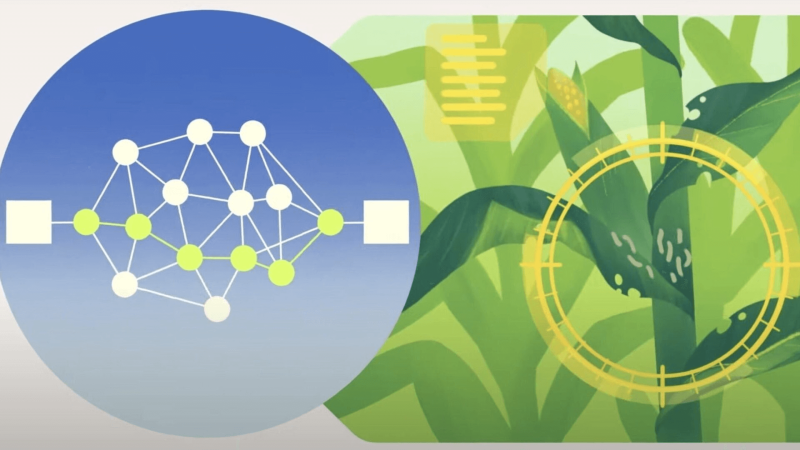They are now doing “computational biochemistry”, manipulating virtual molecules instead of plants. In the laboratory of chemist Bayer in Lyon, artificial intelligence (AI) has disrupted the work of scientists searching for the pesticides of tomorrow.
“Before, we had a bank of keys (the molecules): you have to imagine a giant wall full of keys. We tried them one by one to find the one that suited the lock (the targeted protein). Today, we give the imprint of the lock and we will create the key”, explains Florent Villiers, laboratory manager in computational biochemistry.
This is only possible thanks to AI: on the one hand Chat GPT will digest and classify the approximately “11,000 scientific publications that appear every day”; and on the other hand, “Alpha Fold”, a software developed by Google DeepMind which can model proteins in 3D, now makes it possible to better design the molecules to be inserted into these proteins.
The target protein becomes the starting point for research that begins in the virtual world. The “augmented chemist” will be able to create “practically an infinity” of virtual molecules to ultimately “physically test 2 to 300”, indicates Laurent Bialy, head of innovation strategy in chemistry.
[Editor’s note: This article was originally published in French and has been translated and edited for clarity.]































